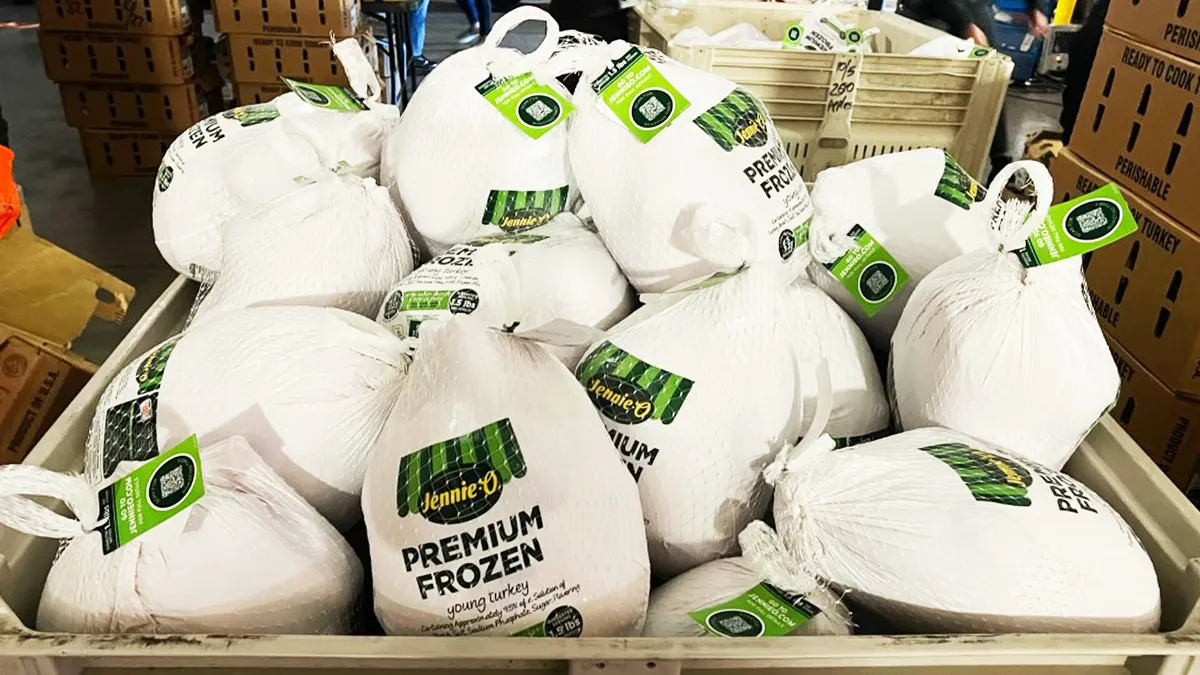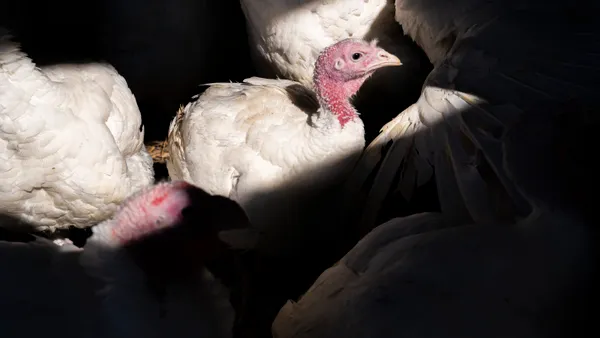Dive Brief:
-
Hormel Foods Corp. generated weaker third quarter earnings over last year, affected by lower whole turkey prices and production issues at a Planters peanut factory.
-
The Minnesota-based company saw sales decline 7% in the retail category to $1.8 billion, citing significant volume and pricing declines from a year ago. Retail profit fell 15% to $128 million over the same period as sales grew for bacon, ground turkey and peanut butter.
-
Despite retail headwinds, Hormel had strong foodservice and international results during the quarter as the Spam and Jennie-O producer made progress on its plan to “transform and modernize” operations with cost-cutting and supply chain improvements.
Dive Insight:
Hormel has leaned into foodservice and value-added products to somewhat insulate itself from a volatile commodity price environment. Still, growth in branded Jennie-O items was more than offset by whole bird commodity markets.
Additionally, production challenges at a snacking facility in Suffolk, Virginia that caught fire earlier this year weighed on earnings. Hormel also experienced storm damage at a Papillion, Nebraska, meat plant early in the fourth quarter. The factory makes salami and dried sausage products.
President and CEO Jim Snee said in an earnings call that he expects the company’s transformation plan to deliver its strongest savings in the fourth quarter, building on improvements made at the corporate and manufacturing levels.
“We remain on a realistic and achievable path to improve our business, deliver on our commitments and execute against our long-term strategic priorities,” Snee said.
While Hormel saw retail sales growth over the quarter from several key brands, including Skippy peanut butter, Wholly Guacamole and Applegate natural and organic meats, the company struggled in other areas.
Meanwhile, Hormel’s foodservice and international businesses rebounded. Foodservice sales and volumes increased 7% and 2%, respectively, over last year as higher overhead expenses ate into profits.
For international, weak turkey and pork prices offset sales growth for Spam and Skippy products. However, Hormel’s investments in the Philippines and Indonesia, as well as favorable costs in China, spurred international profit growth of 78% over last year.
Looking ahead, Hormel lowered its full-year outlook to $11.8 billion to $12.1 billion, accounting for market challenges, softness in the contract manufacturing business and plant disruptions in Suffolk, Virginia.











